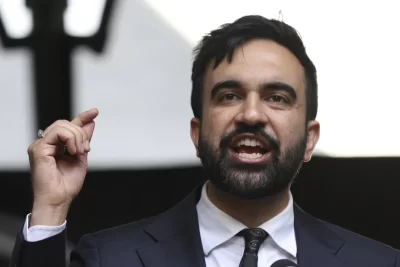
SEOUL, South Korea — South Korea’s opposition parties Wednesday submitted a motion to impeach President Yoon Suk Yeol over the shocking and short-lived martial law that drew heavily armed troops to encircle parliament before lawmakers climbed walls to reenter the building and unanimously voted to lift his order.
Impeaching Yoon would require the support of two-thirds of parliament and at least six justices of the nine-member Constitutional Court would have to support it to remove him from office. The motion, submitted jointly by the main opposition Democratic Party and five smaller opposition parties, could be put to a vote as early as Friday.
Yoon’s senior advisers and secretaries offered to resign collectively and his Cabinet members, including Defense Minister Kim Yong Hyun, were also facing calls to step down, as the nation struggled to make sense of what appeared to be a poorly-thought-out stunt.
In his speech announcing the abrupt order Tuesday night, Yoon vowed to eliminate “anti-state” forces and continued to criticize parliament’s attempts to impeach key government officials and senior prosecutors. But martial law lasted only about six hours, as the National Assembly voted to overrule Yoon and the declaration was formally lifted around 4:30 a.m. during a Cabinet meeting.
The liberal opposition Democratic Party, which holds a majority in the 300-seat parliament, said Wednesday that its lawmakers decided to call on Yoon to quit immediately or they would take steps to impeach him.
“President Yoon Suk Yeol’s martial law declaration was a clear violation of the constitution. It didn’t abide by any requirements to declare it,” the Democratic Party said in a statement. “His martial law declaration was originally invalid and a grave violation of the constitution. It was a grave act of rebellion and provides perfect grounds for his impeachment.”
Impeaching him would require support from 200 of the National Assembly’s 300 members. The Democratic Party and other small opposition parties together have 192 seats. But the rejection of Yoon’s martial law declaration in a 190-0 vote included the votes of 18 lawmakers from Yoon’s ruling People Power Party, according to National Assembly officials.
The leader of the People Power Party, Han Dong-hun, who has long ties with Yoon dating to their days as prosecutors, criticized Yoon’s martial law declaration as “unconstitutional.”
Seoul Mayor Oh Se-hoon, seen as a potential presidential hopeful for the People Power Party, said Yoon’s martial law declaration went against the “fundamental spirit of democracy” and that the deployment of troops to the National Assembly was an act that violated the separation of powers.
“Right now, the most urgent task is a thorough investigation. Through this, we must clearly hold accountable those who participated in destroying democracy,” Oh said in a televised statement.
If Yoon is impeached, he’ll be stripped of his constitutional powers until the Constitutional Court rules. Prime Minister Han Duck-soo, the No. 2 position in the South Korean government, would take over his presidential responsibilities. As calls mounted for Yoon’s Cabinet to resign, Han issued a public message pleading for patience and calling for Cabinet members to “fulfill your duties even after this moment.”
The Constitutional Court has only six justices following three retirements, which is one below the minimum seven needed to handle a presidential impeachment case, requiring lawmakers to speed up the process of naming new justices.
Yoon’s martial law declaration, the first of its kind in more than 40 years, harkened to South Korea’s past military-backed governments when authorities occasionally proclaimed martial law and other decrees that allowed them to station combat soldiers, tanks and armored vehicles on streets or at public places like schools to prevent anti-government demonstrations. Such scenes of military intervention had not been seen since South Korea achieved a genuine democracy in the late 1980s until Tuesday night.




